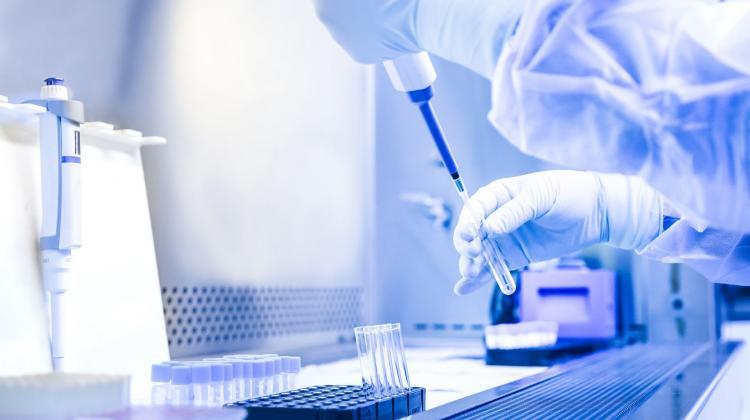Poznań Specialists Carry Out Poland`s First Breakthrough CAR-T Cancer Therapy
 Photo: Fotolia
Photo: Fotolia
Cancer specialists from Poznań have carried out the country’s first therapy for the disease using genetically modified immune cells.
The therapy known as CAR-T and performed on a 30-year-old man suffering from malignant lymphoma, is the most advanced and personalized technology used in the treatment of haematooncological diseases.
As a last resort treatment, it is prepared individually for each patient to reactivate their immune system to fight cancer cells.
Head of the Department of Haematology and Bone Marrow Transplantation at the Poznań University of Medical Sciences Professor Lidia Gil told PAP: "In this therapy, the drug is prepared from the patient`s own cells responsible for anti-tumour immunity, which are genetically modified to recognise the developing cancer. They attach to cancer cells and destroy them without harming healthy cells.”
The cells in question are T cells - immune cells produced in the bone marrow and maturing in the thymus. In cancer patients, they no longer recognise mutant cells and do not attack them, which enables cancer to develop. The goal of CAR-T therapy is to give them back this ability. For this purpose, after collection they are frozen and sent to a laboratory, where are genetically modified.
The lymphocyte modification for the Polish patient was carried out in a laboratory in Santa Monica, California (no centre in Poland can do it yet and it is not known when it will be possible). The gene encoding the receptor, which recognizes the tumour-specific antigen that this cell should fight, is implanted into the T-cell DNA using a virus. It is the CAR receptor, hence the name of the therapy - CAR-T (the letter T refers to T-cell).
The reprogrammed cells were transferred to Poznań and then administered to the patient as a single intravenous infusion lasting about 30 minutes.
Professor Gil told PAP: ”Such procedures can be performed only in certified facilities that perform allogeneic transplants (from a separate donor - PAP). In Poland, several centres are under certification, are completing or have already completed it. I hope that this drug will be administered in several centres in Poland, because there is a demand.”
She added that the first 10 days of the procedure are complex, saying: "Complications usually occur in the first days. After this period, if there are no problems, the patient can be released, but will remain under outpatient supervision for at least a month," she added.
The most dangerous complications include what’s known as the cytokine burst which is caused by the breakdown of cancer cells. It can lead to organ failure and neurological disorders, mainly encephalopathy (brain damage). Haematologists can deal with it because it is similar to the situation after bone marrow transplant.
It is not yet know whether CAR-T offers a permanent cure, because the observation period is too short. The method was first used in 2012 in Philadelphia, USA, in the treatment of refractory acute lymphoblastic leukaemia. Since then, its popularity has grown, although it is still used only in individual patients. Current research shows that the vast majority of patients respond to treatment.
"This therapy is registered and used to treat acute lymphoblastic leukemia in children and young adults, and in the case of lymphomas regardless of age," said Prof. Gil. She added that the first results of the treatment’s effectiveness are verified one month after the administration. "In every cancer case, you have to wait for the effects of the therapy," she said.
PAP - Science in Poland, Zbigniew Wojtasiński
zbw/ ekr/ kap/
tr. RL
Przed dodaniem komentarza prosimy o zapoznanie z Regulaminem forum serwisu Nauka w Polsce.















